
From artificial intelligence algorithms that spot early cancers, to the 'doctor-in-your-pocket' smartphone video consultation, a string of next-generation healthcare technologies are being unveiled at a rapid rate.
For instance, as recently announced in England, users of the NHS app can now collect medications from a pharmacy without having to visit a healthcare centre - the usual paper slip given by doctors being replaced by an in-app barcode.
Such innovations have brought huge benefits to millions of patients. But the advantages of such digitisation are not distributed equally. According to a 2023 Ofcom report, one household in 13 has no access to the internet and a similar proportion has no home computer. Yet even within connected households, the so-called 'digital skills gap' means many people could still struggle.
Imagine this typical case. Dorothy and Bill are retired factory workers in their mid-70s. They have a home computer that plugs into the TV, a machine that can (just about) send emails to their daughter who lives abroad.
It's clunky to use, but they love to see news of the family coming through on the TV screen. Websites take a long time to load, however, so they don't use the computer for much else. Bill has a smartphone and receives photos of the grandchildren on an instant messenger app, but he hasn't worked out how to send any back.
Bu hikaye BBC Science Focus dergisinin March 2024 sayısından alınmıştır.
Start your 7-day Magzter GOLD free trial to access thousands of curated premium stories, and 9,000+ magazines and newspapers.
Already a subscriber ? Giriş Yap
Bu hikaye BBC Science Focus dergisinin March 2024 sayısından alınmıştır.
Start your 7-day Magzter GOLD free trial to access thousands of curated premium stories, and 9,000+ magazines and newspapers.
Already a subscriber? Giriş Yap
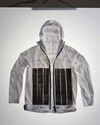
NOW YOU SEE ME, NOW YOU DON'T
Scientists around the world are working on ways to hide us from sight. But how close are we to developing tech that could make us invisible?
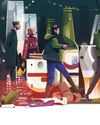
UNCORKED POTENTIAL
How much good can ditching drink for a month really do? Answer: a whole lot. In fact, science shows even short-term abstinence could unlock a cocktail of lasting benefits

Scientists discover when humans and dogs became friends
The relationship spans thousands of years, but experts might have pinpointed the first connection
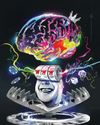
Why it's so hard to kick a gambling addiction
We now know that gambling can be as addictive as drugs, but there are factors that can make it even harder to quit

How much could Ozempic change our world?
The weight-loss drug has made headlines and broken sales records, but what does it mean for our future?
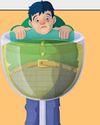
WHY DOES DRINKING ALCOHOL MAKE IT SO MUCH HARDER TO LOSE WEIGHT?
While enjoying the occasional glass of wine or pint of beer may seem harmless, regular or excessive alcohol consumption can significantly hinder your weight-loss journey for a few reasons:

Why do so many New Year's resolutions fail?
Establishing positive new habits is hard at any time of year. But there are ways to stop your attempts ending in failure
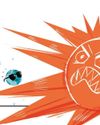
'Extreme' solar radiation storm could hit Earth
Sun-like stars may have tantrums far more frequently than we thought

HOW CAN I BANISH THE JANUARY BLUES?
Dark mornings, long chilly evenings and short days; many people find January tough.
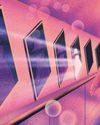
Neutrinos are getting in the way of dark matter detection
These troublesome particles are difficult to detect, but they're starting to show up in places where they're not wanted